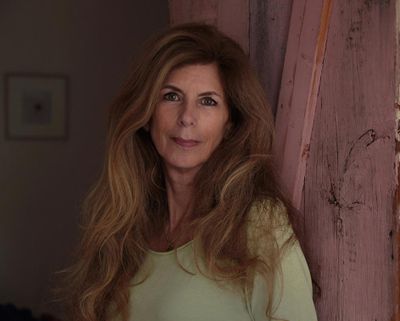Poet Marie Howe will discuss writing, spirituality and doubt in Spokane talks

Poet Marie Howe has been trying to write about Mary Magdalene for more than 30 years. Her fascination with the biblical figure goes back even further.
“Like many women, I grew up with the stories in the Old and New Testament,” Howe said. “Mary Magdalene was the woman I most identified with – and even as a girl I knew something wasn’t right with the story as it was told.”
Howe’s fourth book of poems, “Magdalene,” gives Mary Magdalene a new story, one that casts her in a modern light and lets readers see themselves reflected in her. In these poems, “Magdalene … is ever alive and struggling with the devils many of us struggle with,” Howe said.
This exploration of spirituality and doubt is one reason professor Tod Marshall chose Howe to be part of this year’s Gonzaga University Visiting Writers Series. The series, which aims to bring distinguished writers to Spokane each year, is partnering with Spokane Community College for Howe’s visit. The award-winning poet, who has received fellowships from the Guggenheim Foundation and the National Endowment for the Arts, will spend time with students and read from her works on both campuses. The readings – Tuesday at Gonzaga and Wednesday at SFCC – are open to the public.
From Howe’s perspective, poetry provides an opportunity for healing in how it allows us to tell human stories. Juxtaposed against Mary the mother of Jesus, “Magdalene was set up as the repentant sinner (often a prostitute),” creating a split that has affected women for generations.
“This split between the virgin and the whore, the mother and the single woman, the sacred and the sensual, the body and the spirit – established by the patriarchy – has caused so much suffering in women,” Howe said. “How can we begin to heal this split? Perhaps by talking about it – telling our stories.”
The stories in “Magdalene,” which was long-listed for the 2017 National Book Award, are stories of grief and happiness, parenthood and sexual pleasure, joy and loneliness. They’re full of taxis and television and bags of groceries. They grapple with addiction. They remain rooted in the physical world while exploring the metaphysical, blending the mundane and the sacred. A woman sitting on a bench waiting for a bus inhabits the same poem as the desire to see “into the something else that almost gleams through the day.”
Howe’s ability to use “deceptively simple moments” to slowly tell a powerful story is part of what SFCC instructor Laura Read admires about Howe’s work. Read and her colleague Connie Scott regularly teach Howe’s second book, “What the Living Do,” which is largely an elegy to Howe’s brother John, who died at age 28. The book “helps students get acquainted with poetry because the poems tell a story in pieces,” Read said.
“Sibling loss is not often covered in poetry, and she does a masterful job of it,” Scott added.
Read said she and Scott are excited for Howe’s visit, as are their students.
Howe values the opportunity as well. “It’s a great privilege to travel and to read to people, to meet and share experience – those meetings are mutual – and I learn a great deal from them and am nourished deeply,” she said.
Between teaching and traveling, “The greatest loss is time alone, time in solitude,” said Howe, who lives in New York and teaches at Sarah Lawrence College, “time to experience what John Keats called ‘happy indolence’ – what he suggests every poet needs – time to read and wonder and wander in thought and feeling.”
The importance of such wondering and wandering is evident in Howe’s work, which seeks out silence and strives to hold onto it, even as it gets caught up in all the things that fill our lives with noise.
“The base note of our lives is silence. The trees move in it, the birds sing, dogs bark, cars beep – people speak – but the silence is the deep ground,” Howe said.
“Poetry must be made of both … utterance and silence. Poetry hopes to hold what can’t be reduced, can’t be paraphrased, but can be understood.”